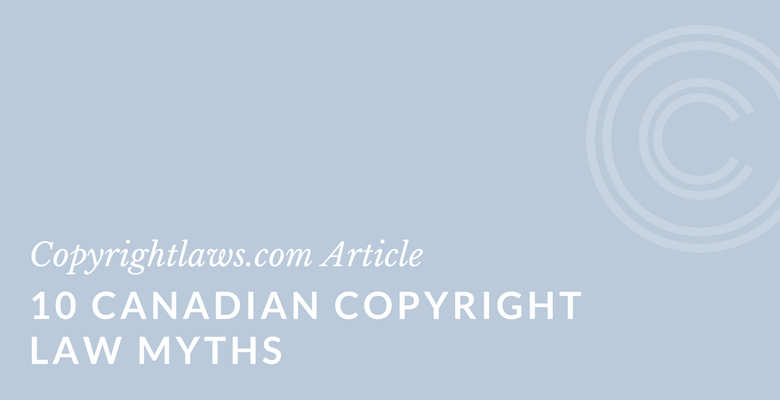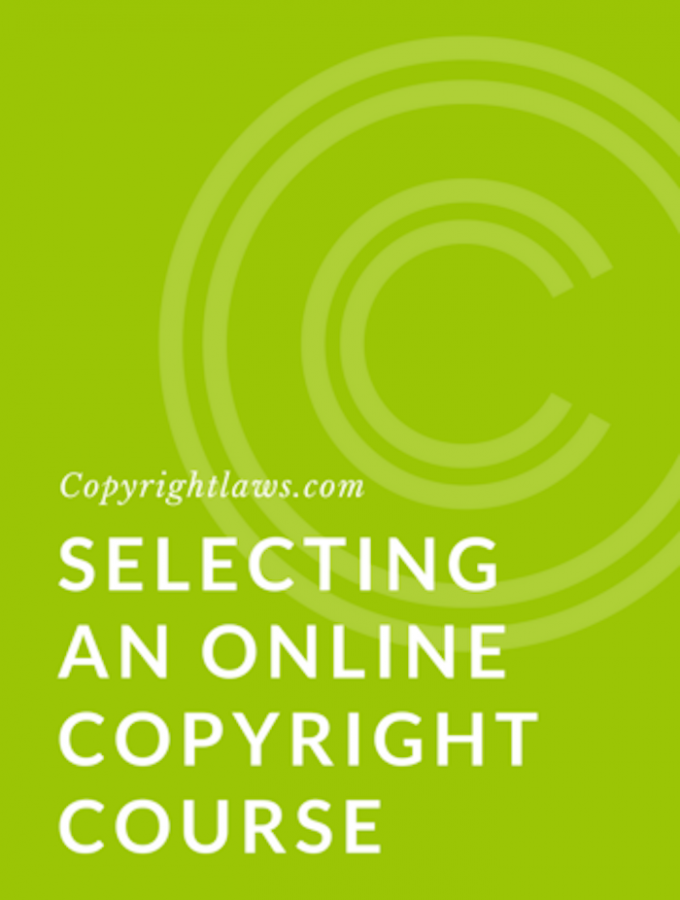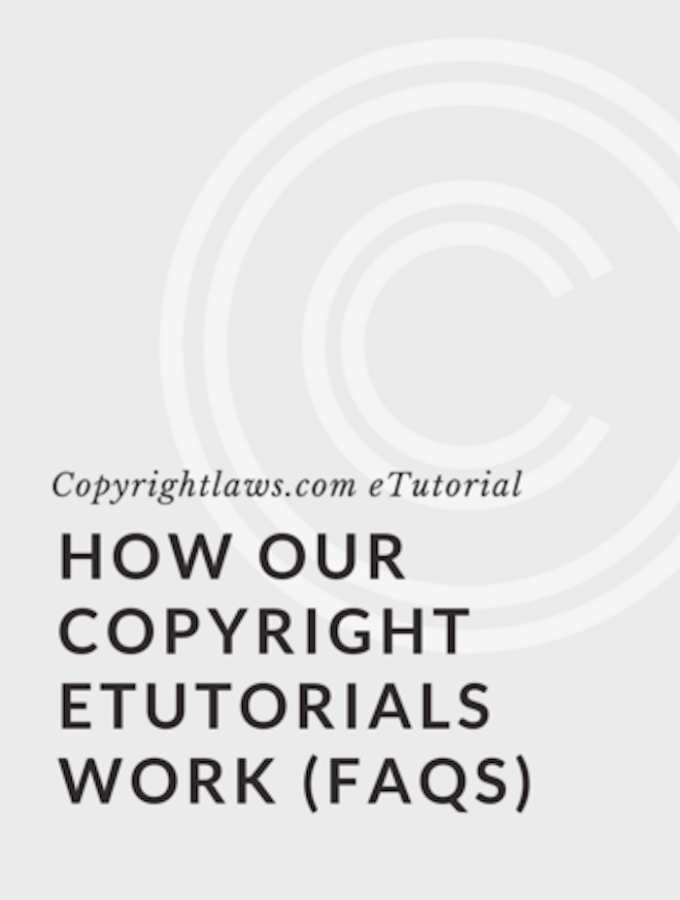Canadian copyright law myths can cloud your interpretation of copyright law. How do you ensure that your information is accurate and objective? Do you read the Canadian Copyright Act? Review recent copyright cases? Attend courses and discussions?
Learn more about universal copyright myths in our micro course
Demystifying Copyright Myths, the Public Domain and Creative Commons Licenses.
Register now and start learning right away!
Canadian Copyright Law Myths
- Does fair use exist in Canada?
- Do you need to use the copyright symbol © to have copyright protection in a work?
- Does copyright protection end when the copyright owner passes away?
Do you know the answer to the above questions about Canadian copyright law? Do others you work with understand the principles of Canadian copyright law? Share the following list of 10 Canadian copyright law myths and use it as a starting point to get the copyright conversation started in your library, institution or organization. You may also like 8 Facts About Canadian Copyright Law.
Read each myth followed by the actual fact to increase your knowledge about Canadian copyright law.
10 Canadian Copyright Law MYTHS
MYTH #1: Ideas are protected by Canadian copyright law
Ideas, facts, history and news aren't protected by Canadian copyright law. It's the expression of ideas, facts, et cetera that's protected by copyright. You can summarize the ideas or facts from an article or book without obtaining copyright permission. However, if you photocopy or digitize the article or book, then you do need to obtain permission.
MYTH #2: Canada’s copyright duration of life-plus-fifty was inconsistent with the international norm
The international norm for the duration of copyright protection is still life of the author plus 50 years. This is set out in the leading international copyright treaty, the Berne Convention. However, some countries, including the U.S. and European Union countries, go beyond this norm and now provide copyright protection 70 years after the death of the author.
Canada has extended the protection of copyright in performances and sound recordings to 70 years after the release date of the sound recording. This new term became effective 23 June 2015.
As of 30 December 2022, copyright in published works in Canada endures for 70 years after an author’s death, until the calendar year-end. For example, if a writer died on 30 April 1990, copyright in their books expires on 31 December 2060. This is the general rule of copyright duration and there are different durations for specific subject matter and situations.
MYTH #3: The Canadian Copyright Act has been rewritten twice in the past century
The current Canadian Copyright Act was enacted in 1924 and has never been fully replaced by an entirely new Act. The current Act has, however, been amended a number of times. Current Canadian government initiatives have been to amend the Act rather than overhaul it and replace it with an entirely new Act.
The most current major amendments to the 1924 Act are in Bill C-11, the Copyright Modernization Act, which received royal assent on 29 June 2012. Most of the changes from Bill C-11 came into force in November 2012. For further information on past and current copyright reform and court cases, as well as the statutory government review of the Canadian Copyright Act, see the Centre for Canadian Copyright Law.
MYTH #4: Creators in Canada must register their works with the Canadian Copyright Office
Copyright is automatic upon the creation of a work in a fixed form. While you may register your works with the Canadian Copyright Office and will then receive some benefits should you ever enforce your rights in a legal suit, registration isn't mandatory for copyright protection.
Note that Canadians sometimes utilize the registration system in the U.S. Copyright Office (USCO) because the USCO requires a deposit of a copy of the work which can be act as proof in a copyright infringement suit in Canada.
MYTH #5: Canada isn't a member of the leading treaty on copyright, the Berne Convention
Canada joined the Berne Convention, administered by the World Intellectual Property Organization (WIPO), in 1928. In addition, Canada joined the two WIPO digital/internet treaties in 2014 (the WIPO Copyright Treaty [WCT] and the WIPO Performances and Phonograms Treaty [WPPT]).
MYTH #6: Fair use exists in Canada
Fair use is a doctrine that exists in the U.S. and other countries; it doesn't exist in Canada. The Canadian Copyright Act contains the principle of fair dealing which is often compared to (but is not exactly the same as) the U.S. fair use principle.
MYTH #7: Canadian government works aren't protected by copyright
Canadian government works are protected by copyright; however,
Permission to reproduce Government of Canada works, in part or in whole, and by any means, for personal or public non-commercial purposes, or for cost-recovery purposes, is not required, unless otherwise specified in the material you wish to reproduce.
See Federal Reproduction of Law Order.
MYTH #8: Employers are considered the authors of the works produced by their employees
Works created during the course of an employee’s employment duties belong to the employer. However, the author/employee remains the author of the work. Some important facts to keep in mind:
- Duration of protection of the work is determined by the employee/author’s life
- The employee retains the moral rights even where the employer is the owner of the work
MYTH #9: Using the copyright symbol, ©, is necessary to have copyright protection in Canada
Once an original work (meaning not copied from elsewhere) is "fixed" — for example, created and put down on paper, musically notated, or saved on your computer or a drive — the creation has immediate and automatic copyright protection. You don't need to register the work or deposit a copy of it with the Canadian Copyright Office, or place the copyright symbol, ©, on it. Automatic protection has always been the law in Canada.
Practical Tip: It's a good idea to use the symbol to inform the world that the work is protected by copyright. Some copyright owners go further and include their email address following the copyright symbol in order to make it easier for people to request permission to use their works.
MYTH #10: To be protected outside of Canada, a copyright author/owner must register their works in each country where protection is sought
Once a work is protected by copyright in Canada, the work is automatically protected in all countries that are members of the Berne Convention (currently 181, including Canada). All members of the Berne Convention have automatic copyright protection and can't have requirements for registration in order to protect a work by copyright.
Need to answer copyright questions and be confident in managing copyright issues
in your library or organization? See the Certificate in Canadian Copyright Law.




